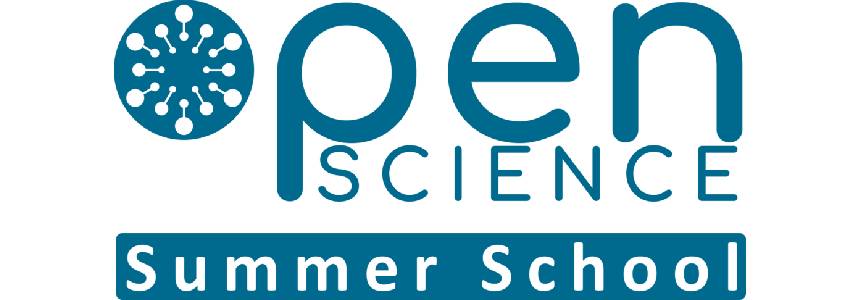SUMMER SCHOOLS
UNIVERSITY OF MARIBOR OPEN SCIENCE SUMMER SCHOOL 2023

The summer school was organised as a Blended Intensive programme (BIP) with a physical and a virtual part.
Virtual part
The virtual part of the BIP was carried out as an MS Teams meeting with the following content:
- Open Science – an introduction: How can I open my research?
- benefits, requirements and potential rewards in practising open science,
- diversity of outputs throughout the research lifecycle,
- practices, tools and communication channels that ensure research openness,
- FAIR and CARE principles and Responsible Research and Innovation requirements.
- Systematic literature review
- difference between a classic literature review and a systematic literature review,
- methods of doing SLR developed at Griffith University,
- the usefulness of different methods,
- value of systematic literature review.
- Introduction to the course and practical information
- Information about arriving in Maribor, accommodation
- Practical information prior to the arrival of participants
During the presentation, the participants collaborated with questions and discussion. The purpose of the virtual meeting was to provide participants with important information prior to their arrival to Maribor (regarding accommodation, orientation in the city etc.) and to allow them to prepare for lectures before arrival with an introductory lecture on open science and systematic literature review of their thesis or study courses.
Physical part
Skills and competencies related to data literacy and research data management are indispensable in today’s data-intensive research environment, both in STEM as in the humanities and social sciences. In recent years, there has been a significant shift towards open science in scientific communication, and many new approaches, tools and technologies have appeared that enable a research process that goes beyond the traditional way of research work. Open science has the potential to lead researchers to an open, collaborative, transparent, reproducible and, therefore, efficient research process.
The objective of the University of Maribor Open Science Summer School was to offer students and researchers at the beginning of their careers the opportunity to learn about and develop skills in the areas of research data management and learn to provide open access to their research results/findings. Through lectures and workshops led by national and international experts, we enabled a deeper understanding of these topics and provided valuable practical experience. The goal was to ensure that young researchers were empowered to practice open science. Talks and workshops included the following topics:
- Open data, FAIR data and research reproducibility
- Data management plan (DMP) writing
- How to find a suitable (data) repository
- Copyright and licenses
- How to manage sensitive and personal data
- European Open Science Cloud and (open) research infrastructure.
KIP methods and results
With lectures and workshops led by domestic and international experts, the course provided a deeper understanding of topics concerning research data management, open science, science communication, copyright issues in sharing research results and insight into valuable practical experience.
- Lectures: During the lectures, the participants learned about the theoretical and practical aspects of open science, research data management, the FAIR principles, copyright and ensuring open access to their research results.
The lectures covered all essential stages of the research process in the context of open science tools that go beyond traditional research methods.
Result: A deeper understanding of open science in theory and practice.
- Workshops: With the help of interactive workshops, the participants gained practical experience in the field of planning research data management and ensuring open access to their research results. They also familiarized themselves with the services and possibilities of using the European Open Science Cloud.
Result: Acquisition of practical experience in the field of research data management and using European research e-infrastructure.
- Field trip: The participants had a guided tour of the research institution IZUM (Institute of Information Science) in Maribor, where they got to know the infrastructure and the flow of data-intensive work and big data management.
Result: Familiarization with good practices in a research institution or company.
- Social activities: The reception of the participants in the form of an introductory evening together and other social activities with some of the lecturers who were actively involved in the implementation of the entire program were aimed at getting to know each other and networking for possible future joint projects.
Result: Getting to know the participants and networking in the future.
- Course materials: The participants received pre-reading materials to familiarize themselves with the topics before the physical part of the course. All the lectures were published on the course website in video format, as well as the presentations, which are made available in open access for future reference and (re)use.
Result: Availability of course materials for future reference and (re)use for the participants as well as the wider public in line with open science principles.
- Course assessment: The participants were asked to fill out an evaluation form at the end of the course and evaluate the quality and value of the course.
Result: The feedback will help us deliver even more engaging training in the future.












